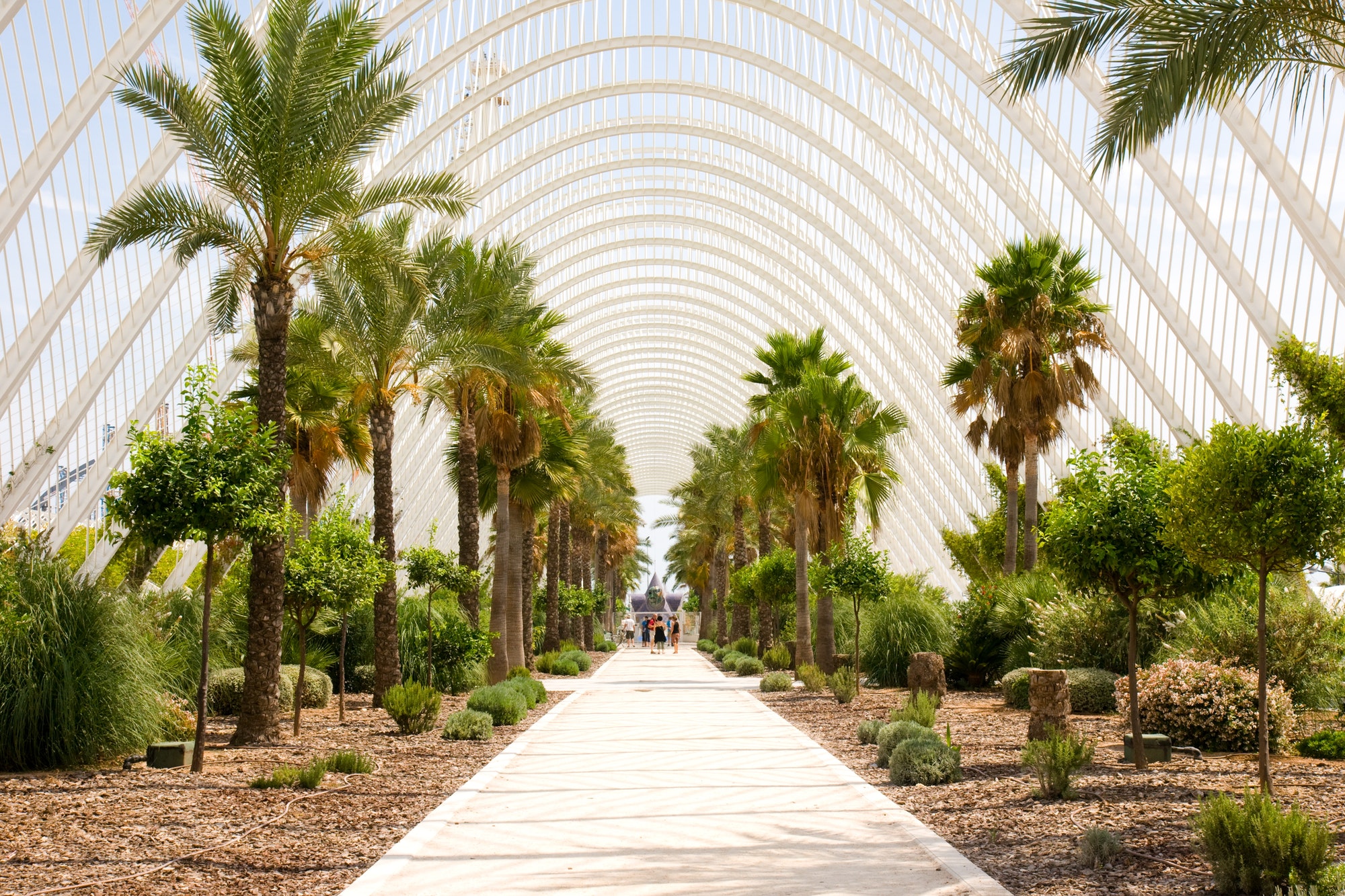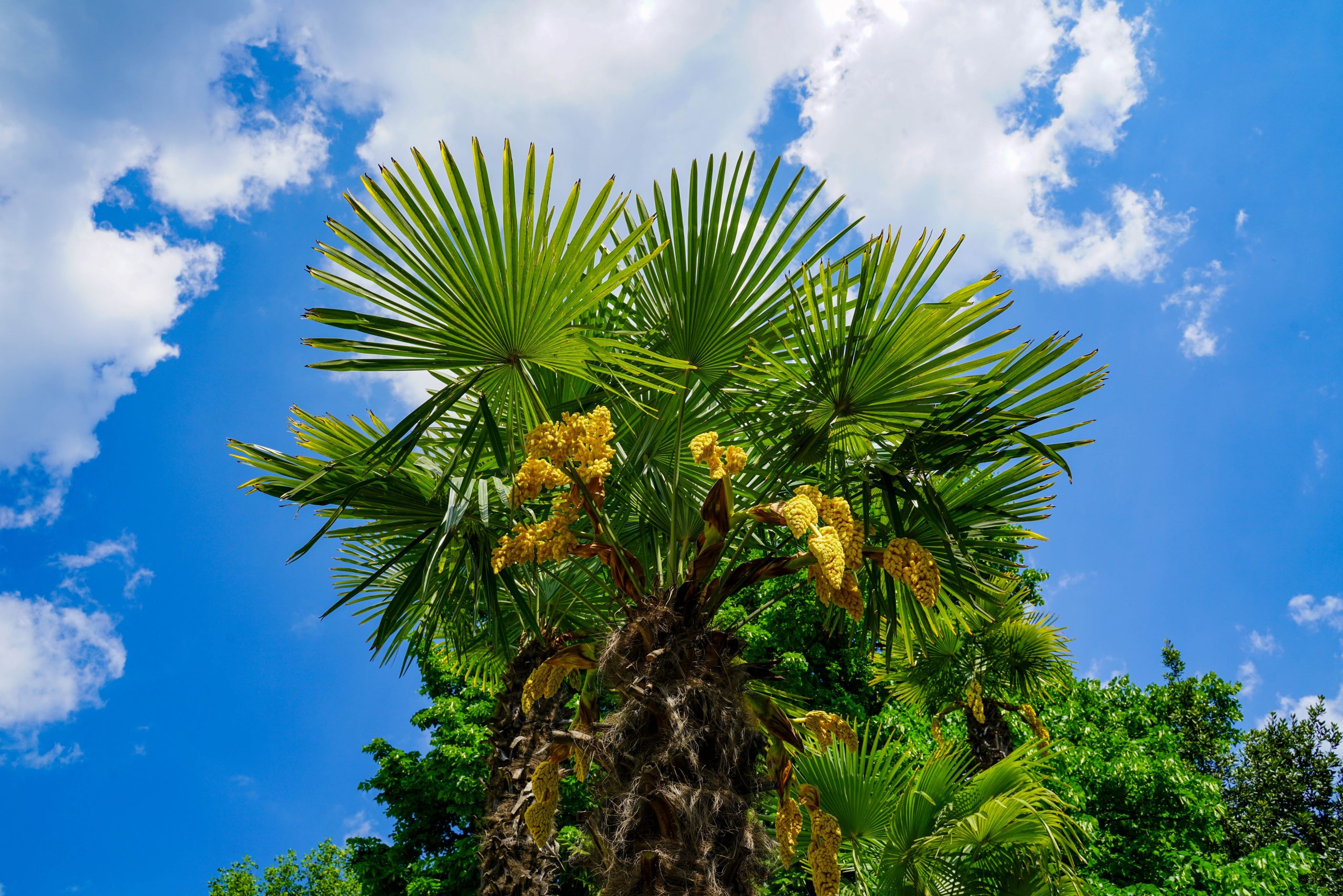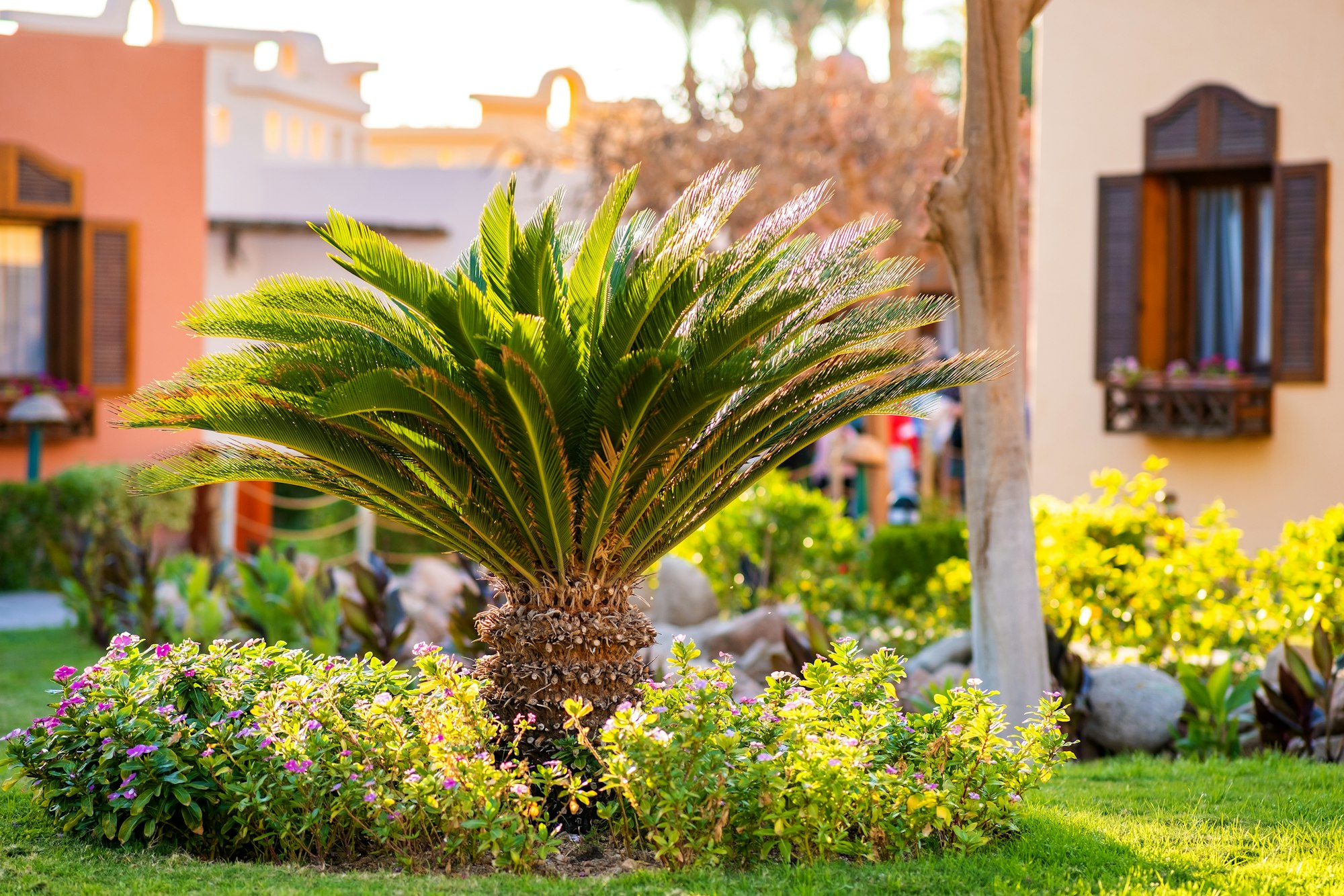Looking To Purchase?
Need Help?
Visit Us
South Mills, NC 27976
Call Us

Explore the diverse world of palm trees, where each species brings its own unique charm and characteristics to the landscape. From towering fan palms to elegant date palms, there’s a palm tree for every setting and climate.
Did you know that palm trees are not actually trees, but rather a type of plant known as a monocot? This means that their trunks are not made of wood like traditional trees, but instead consist of fibrous material that provides flexibility and strength.
One of the most iconic palm tree species is the coconut palm, known for its tall slender trunk and large clusters of coconuts. Native to tropical regions around the world, the coconut palm is prized for its versatility, providing food, water, and shelter to countless species of animals and humans alike.
Another popular palm tree variety is the date palm, revered for its sweet and nutritious fruit. Originating from the Middle East, date palms have been cultivated for thousands of years for their delicious fruit and shade-providing canopy.
For those seeking a touch of exotic flair, the fan palm is an excellent choice. With its distinctive fan-shaped leaves and compact size, the fan palm adds a tropical touch to any landscape, whether planted as a solitary specimen or in a group.
No matter which palm tree species you choose, you’ll be adding a touch of tropical paradise to your outdoor space. With their graceful fronds, striking silhouettes, and resilience in various climates, palm trees are sure to make a statement wherever they’re planted.

Cold Hardy
Palm Benefits

Care & Maintenance
What are cold hardy palms, and where can they be grown?
Cold hardy palms are palm tree species that can tolerate freezing temperatures and snow, making them suitable for cultivation in temperate and subtropical climates where winter temperatures occasionally drop below freezing.
What are some popular cold hardy palm species?
Popular cold hardy palm species include the Windmill Palm (Trachycarpus fortunei), the Needle Palm (Rhapidophyllum hystrix), and the Dwarf Palmetto (Sabal Minor).
Sago Palm
Despite its name, the Sago Palm is not a true palm but a cycad, a prehistoric plant. It is known for its striking foliage and resilience in various conditions.
Windmill Palm
Originating from China, the Windmill Palm is one of the hardiest palm species, capable of withstanding freezing temperatures and snow.
Pindo Palm
Also known as the Jelly Palm, its fruits are edible and can be used to make jelly, adding a delicious and exotic touch to culinary creations.
Sabal Louisiana
This palm species is native to the southeastern United States and is known for its tolerance to wet and swampy conditions, making it ideal for landscaping in humid climates.
Needle Palm
Native to the southeastern United States, the Needle Palm is one of the hardiest palm species, capable of surviving temperatures as low as -20°F (-29°C).
Let Us Help With Your Landscaping Journey


